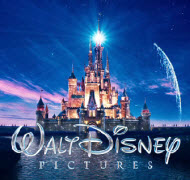Nixon
 for language.
for language.
Reviewed by: Andrew Hager
CONTRIBUTOR
| Moral Rating: | Very Offensive |
| Moviemaking Quality: |
|
| Primary Audience: | Adults |
| Genre: | Docudrama |
| Length: | 3 hr. 11 min. |
| Year of Release: | 1995 |
| USA Release: |
December 20, 1995 (limited) January 5, 1996 (wide) |
| USA Release: |
| Featuring | Anthony Hopkins, Joan Allen, Powers Boothe, Ed Harris, Bob Hoskins, E.G. Marshall, David Paymer, David Hyde Pierce, Paul Sorvino, Mary Steenburgen, J.T. Walsh, James Woods |
| Director |
Oliver Stone |
| Producer | |
| Distributor |
Oliver Stone’s “Nixon” begins with a Biblical reference:
“What good will it be for a man if he gains the whole world, yet forfeits his soul?” —Matthew 16:26
This is an accurate starting point for Stone, whose thesis seems to be that President Nixon became entangled in jealousy and pride, both of which led to his downfall.
Told mostly in flashback form, “Nixon” recounts the life of our 37th president, from his humble beginnings in a Quaker family to his resignation from office in 1974. Anthony Hopkins portrays Tricky Dick brilliantly, rising above caricature to present a real human being rather than an evil tyrant.
Surprisingly, Stone, whose work is often deemed “liberal,” shows kindness to Nixon, giving the audience a chance to feel sympathy toward a man demonized by his opponents. Clearly, Stone is concerned with honesty, despite the poetic license he takes with a few minor details.
The performances are uniformly perfect, from Paul Soevino as Henry Kissinger to James Woods as Bob Haldeman. Especially effective is Joan Allen as Pat Nixon. Her performance plays well with Hopkins' and their scenes are dynamite. Pat clearly loves Dick, but his actions drive her away. Allen captures the pain of a hurt wife in great detail.
Stone wades through a great number of facts in this film, presenting a complicated case in an understandable way. As someone who was not born until nine years after Watergate, I have often been confused by accounts of the break-in and subsequent controversy. “Nixon” takes pains to make it clear and understandable, though its a shame that Stone could not present his original 4 hour version. Some of his themes could have enjoyed some more time to develop.
This is not a film for the extremely conservative. Nixon is portrayed according to his tapes, which means that he is quite profane and is shown drinking. (These ideas were protested by Nixon’s children and the film received heavy attacks from conservatives such as G. Gordon Liddy, the Watergate burglar.) Some Christians may be offended by an anti-Catholic comment made by Nixon’s father, but his mother, whom he calls a “saint” throughout the film, is portrayed as a powerful woman of faith.
Nixon, as a result of her Quaker idealism, has an undercurrent of religion about him. In the most powerful scene, he and Kissinger pray together. The prayer seems to soothe the President and demonstrates God’s calming influence.
While this film is full of profanity, racial slurs, and alcohol use, it is merely a reflection of the tapes made by Mr. Nixon himself. Clearly, Nixon is an enigma, and one Stone is not afraid to tackle.




